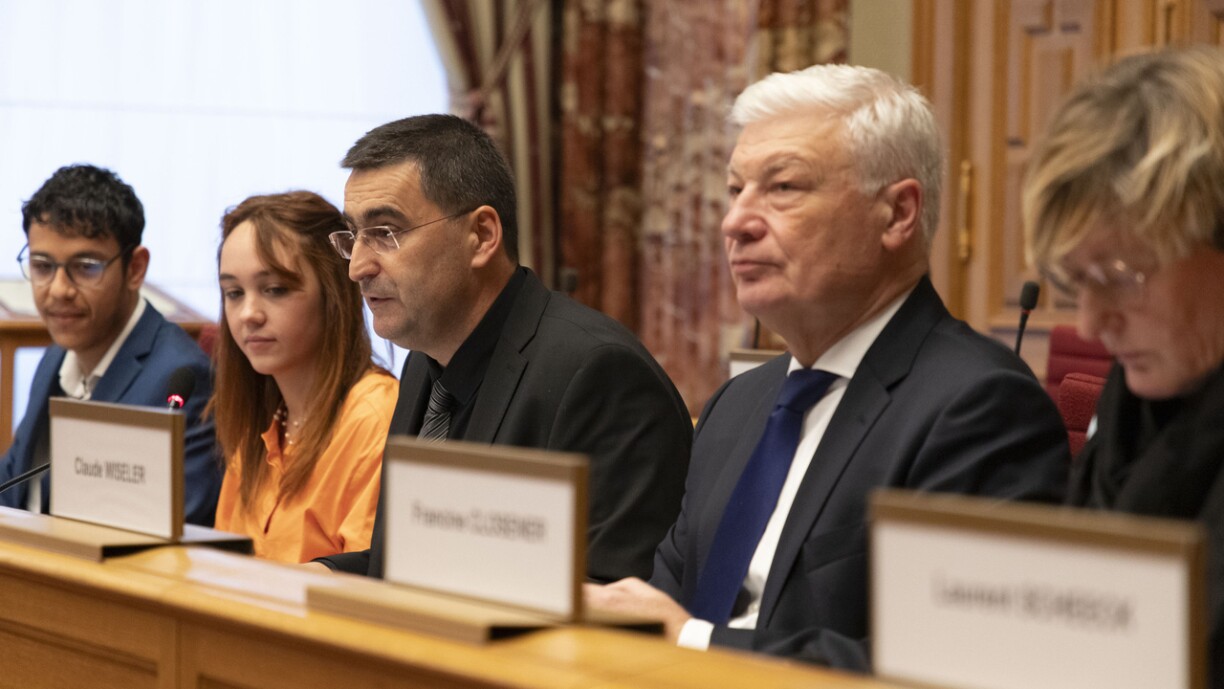
On Wednesday morning, Ombudsman for Children’s Rights Charel Schmit presented his authority’s latest report in the Chamber of Deputies. The Ombudsman raised concerns about societal tendencies that question past gains, stressing that “children’s rights are not negotiable.” The report also outlines priorities for the coming year, including mental health, improved child protection legislation, and better protection against the dangers of the internet and the risk of falling into poverty.
Schmit described the latest figures as “alarming” and warned that pressure on Luxembourg’s youth is rising. Among other factors, the Covid-19 crisis took a toll on the well-being of children and adolescents, he said.
The presentation in the Chamber of Deputies on Wednesday also featured testimony by 17-year-old Léonie, who assists the Ombudsman for Children’s Rights as a “Young Advisor”. Léonie shared her personal experiences with MPs and highlighted the problematic situations many adolescents find themselves in.
“In daily life, especially at school, I often come across young people and children who are struggling with mental health issues,” Léonie explained. She pointed out that many adolescents struggle with “severe mental illnesses,” including depression, anxiety, and eating disorders. “Unfortunately, we are a sad generation [hidden behind] happy pictures,” Léonie lamented. As for the reasons behind these issues, the 17-year-old Young Advisor stated that they are diverse: “Political situations such as war, societal pressure, difficult family situations, trauma, abuse, issues with integration, the need to belong, and much more.”
The organisation of support systems must be improved, including through better networking of services, according to Léonie.
For his part, Ombudsman Charel Schmit defined specific risk groups regarding mental health in the responsible parliamentary committees. He noted that it is, for instance, well-documented that children from immigrant families go through a significant amount of trauma. In a similar way, growing up in poverty has an adverse effect on children’s mental health. Other risk groups mentioned by the Ombudsman include children in foster homes, disabled children, and those part of the LGBTQIA+ community who may suffer from mental health issues as a result of a lack of respect and understanding in their environment.
Schmit proposed several measures to tackle some of the issues outlined in the report. In the context of asylum procedures, state authorities should conduct a “systematic and thorough” psychological evaluation of children as soon as they arrive in Luxembourg. LGBTQIA+ issues should be “a normal part” of the Grand Duchy’s school curricula and children should be informed about mental health “from the very beginning”. In general, Ombudsman Schmit calls for the creation of a more integrated child protection system.
The Ombudsman also addressed the “significant” dangers posed by the internet, such as cyber harassment and sextortion. Schmit again proposed several measures to address these concerns, including the introduction of age verification systems and a legal minimum age for owning a smartphone. In this context, Schmit welcomed the increasing number of schools introducing bans on smartphones. The supervision of children’s digital activities by parents and adults should also be strengthened, according to Schmit, who also called for legislative measures to this end.
Schmit stressed that “it won’t be enough to bank on voluntary action, awareness raising, and prevention,” urging MPs to establish “very clear legal standards.”
Another focal point of the Ombudsman’s report is child poverty. Schmit sharply criticised the current situation, stating that “despite its wealth, Luxembourg is doing very poorly compared to the rest of Europe.” The Ombudsman highlighted that one in four children in the Grand Duchy lives beneath the poverty threshold, with half of all cases affecting single-parent households.
Finally, Schmit insisted that the principle of inclusion in the educational system must not be questioned, as was recently the case.
According to the Ombudsman, it is the responsibility of the school as an institution and the drop-in centres to ensure that inclusion is feasible. While Schmit acknowledged that there are “obstacles” to achieving this, including difficulties on the ground and limited funds, he strongly condemned statements referring to “limits” of inclusion. Schmit argued that this essentially puts the blame on children with specific needs, instead of addressing failures in education or organisation.